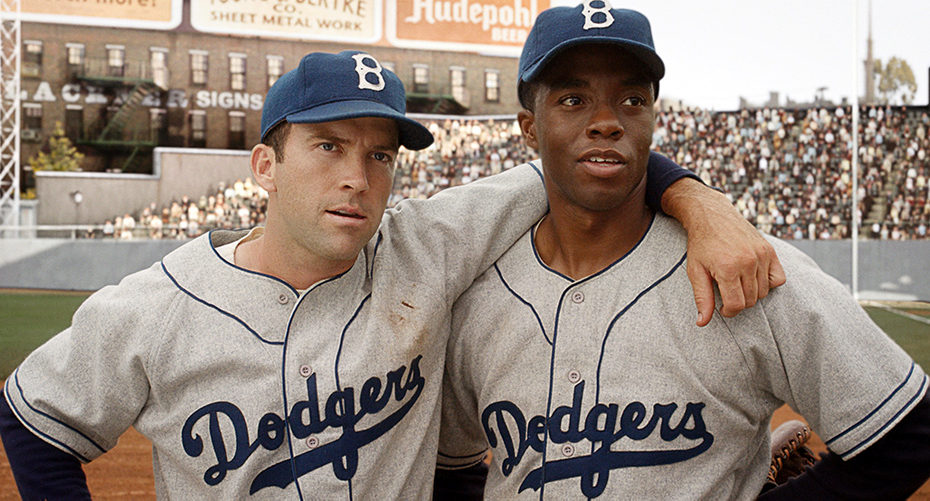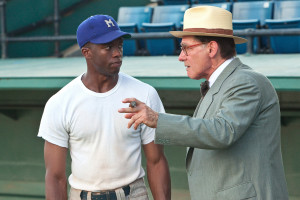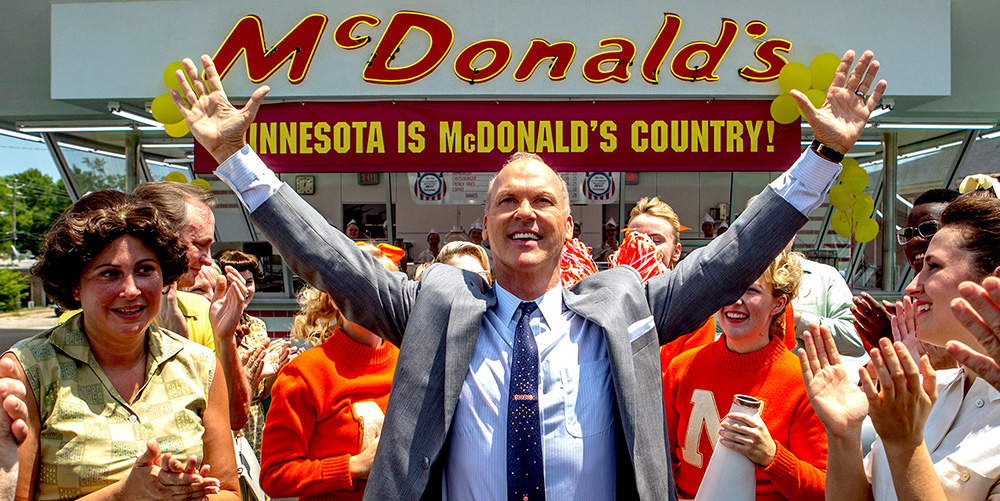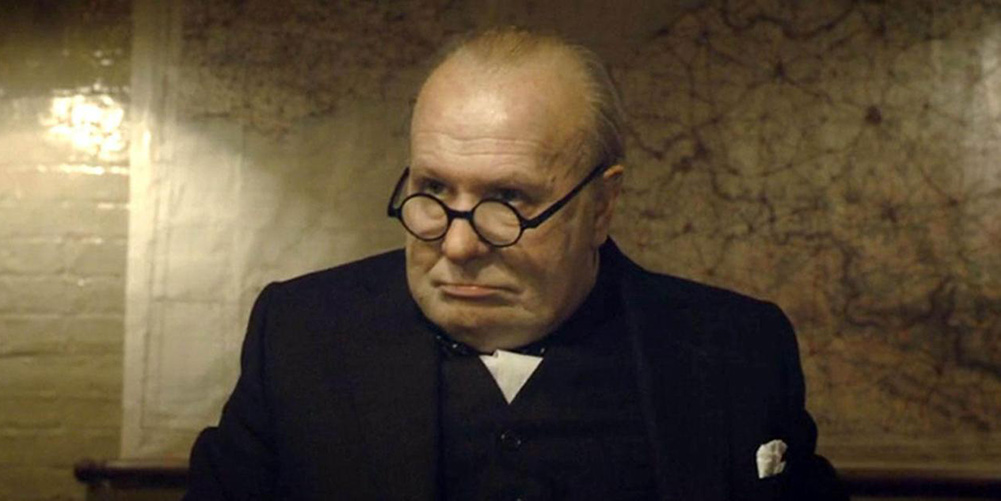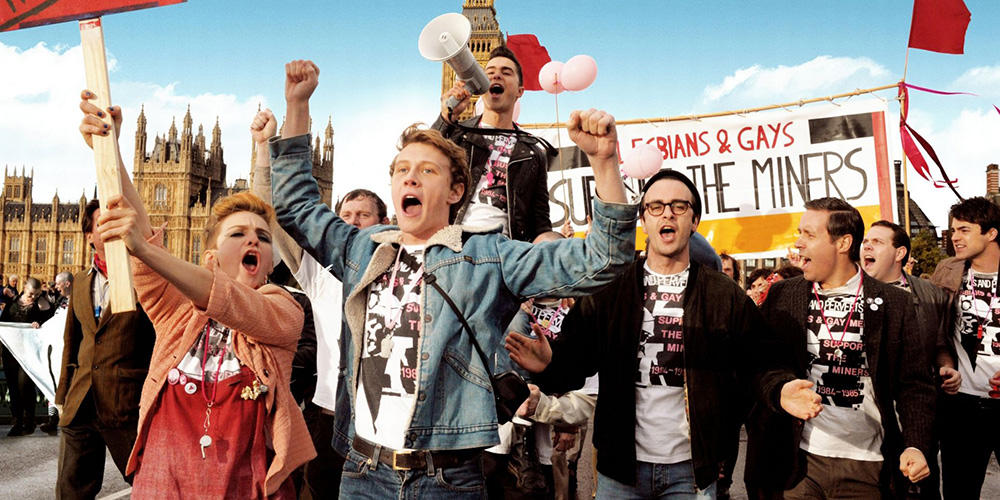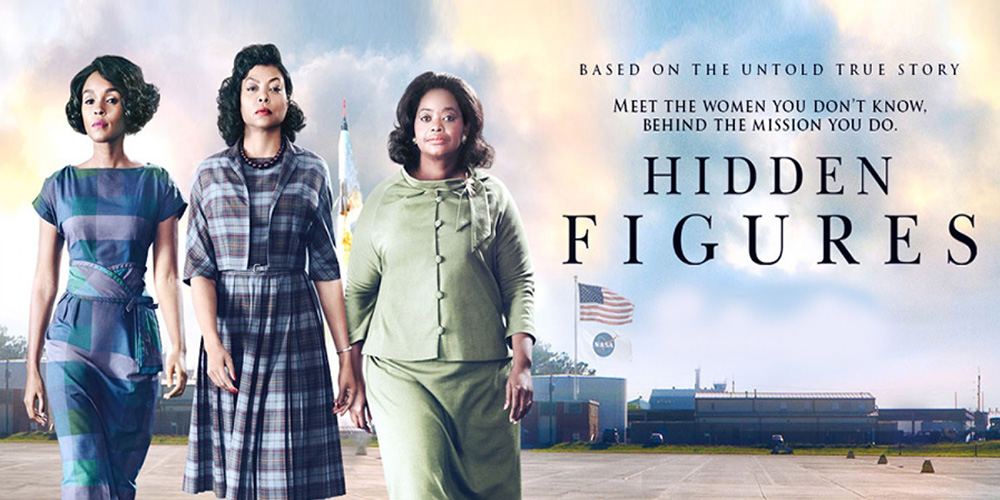As we saw in Remember the Titans, movies about race and sport can provide fertile ground for lessons on change. 42 continues this theme, telling the powerful story of Jackie Robinson, the first black player in Major League Baseball.
In 42, Brooklyn Dodgers general manager Branch Rickey (played by Harrison Ford) breaks Major League Baseball’s unofficial ‘colour barrier’ by signing Robinson (Chadwick Boseman) to his team. It unleashes an avalanche of resistance from within his team and across the sport.
Aside from the obvious themes of racial inequality, 42 primarily tackles the challenge of instigating and driving through change. It’s about the sacrifices people make and how to bring them along with you. And while you may not be attempting a change of this scale, the five lessons that follow are relevant to almost any situation.
Change requires vision
Rickey is a visionary who takes advantage of the changed post-war environment to drive through social change. There’s nothing accidental about his approach: he doesn’t just come across an outstanding black player and spontaneously decide to employ him.
Instead, it’s a conscious vision to challenge the unwritten rule of the ‘colour barrier’, and to break convention. “I don’t know who he is, or where he is, but he’s coming,” he tells his advisers.
Change requires sacrifice
Rickey knows he’s going to meet a tidal wave of resistance. “We’re a ship without a captain, and there’s a typhoon coming,” he tells his friend Bert when persuading him to be their new manager.
For Robinson, the price of a shot at his dream is an assault on his personal dignity. “I want a player who’s got the guts not to fight back,” Rickey tells him at his recruitment interview. “We win if we convince the world of two things: that you are a fine gentleman, and a great baseball player.”
“I want a player who’s got the guts not to fight back”
Branch Rickey
Robinson has to negotiate a host of obstacles, many of them affecting his teammates too: cheating umpires, irate fans, racist abuse from opponents, intimidatory tactics from pitchers, opposing teams who threaten not to take the field, even a hotel manager who refuses to let the team stay. Each time he has to turn the other cheek.
Change is often about identity
In Resonate, Nancy Duarte suggests that people can’t change without making a sacrifice. That sacrifice isn’t always tangible, but rather a change to how a person sees the world, or themselves.
In 42, as with most change, different groups display different attitudes. Some welcome him. For those who struggle, it’s because Robinson’s arrival challenges their sense of belonging and their personal identity.
“You don’t belong here,” Robinson is constantly told. One teammate refuses to play with him because “his friends back home would never forgive him”. His sense of belonging to his home community is a stronger bond than that of his current team.
Change requires personal courage
In the face of opposition, change requires personal courage and an ability to live with discomfort.
In one memorable scene (which you can watch below), Robinson’s moderate teammate Pee Wee Reese tells Rickey he can’t play the next game in Cincinnati because he’s received a threatening letter. In response, Rickey goes to his filing cabinet and pulls out several huge manilla folders full of death threats against Jackie Robinson.
It makes a powerful statement. “I just want to play ball,” Pee Wee says. “I bet Jackie just wants to play ball too,” Rickey replies. When Pee Wee turns up at the game, he makes a show of putting his arm round Robinson’s shoulders to show his family and friends in the crowd what he stands for.
Change requires perseverance
Unsurprisingly, Rickey and the team face prejudice at every turn. In the words of change expert John Kotter, they have to ensure they ‘don’t let up’ – pushing through every obstacle rather than being derailed.
Among the obstacles they encounter is a team rebellion, where a group of players start a petition saying they won’t play alongside Robinson. Their manager makes it clear the issue is not up for debate. He’s also clear that Robinson is only the first black player of many, and suggests they focus on their own performance. “Unless you fellas pay a little more attention to your work,” he tells them, “they’re gonna run you right out of the ballpark!”
